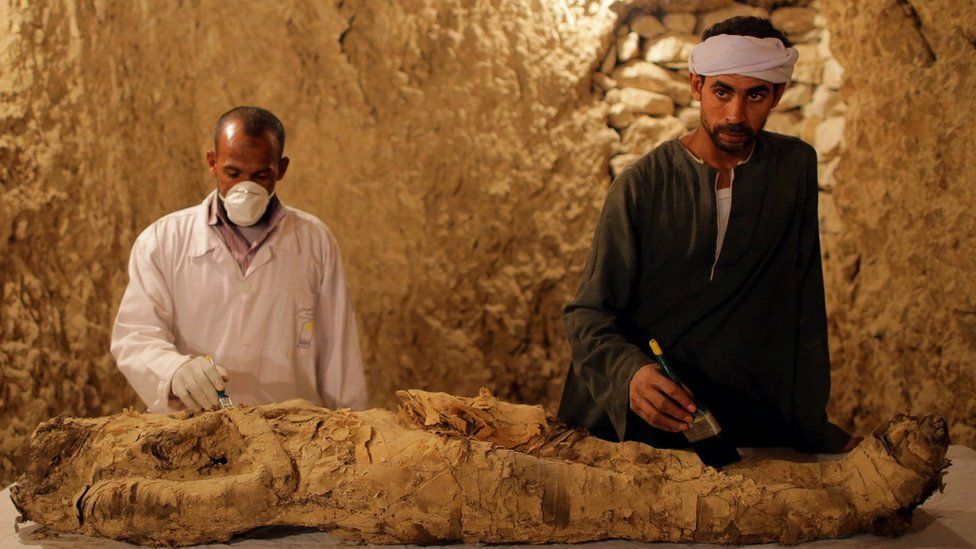Egypt uncovers ancient tombs at Luxor
- Published

Archaeologists in Egypt have displayed items, including a mummy, from one of two previously unexplored tombs in the ancient Nile city of Luxor.
The mummy is believed to be that of a senior official from Egypt's "New Kingdom", about 3,500 years ago.
Other items included figurines, wooden masks and richly coloured wall paintings.
The tombs lie in the Draa Abul Naga necropolis, an area famed for its temples and burial grounds.
It is close to the Valley of the Kings where many of ancient Egypt's pharaohs were buried.
Egypt's antiquities ministry said that the tombs had been discovered by a German archaeologist in the 1990s, but were kept sealed until recently.
The identity of the mummified body is not known but the ministry says there are two possibilities.
It could be a person named Djehuty Mes, whose name is engraved on one of the walls, or it could be a scribe called Maati whose name - and the name of his wife, Mehi - are written on funerary cones, officials said.
The other tomb was only recently "uncovered" and has not yet been fully excavated, the ministry said.
In September, archaeologists discovered the tomb of a royal goldsmith near Luxor.
The tomb, which also dated back to the New Kingdom, contained a statue of the goldsmith Amenemhat, sitting beside his wife.
- Published9 September 2017
- Published18 April 2017
- Published5 February 2015